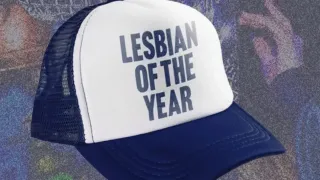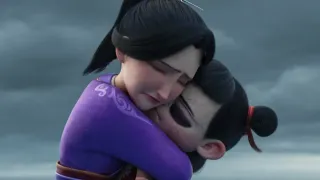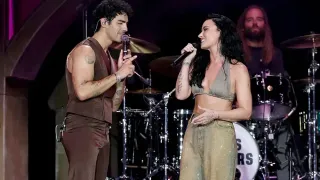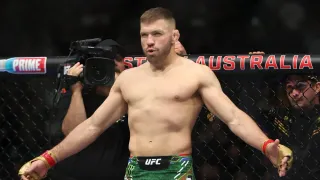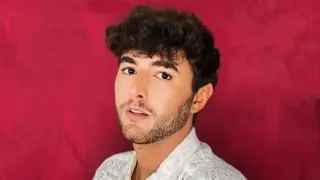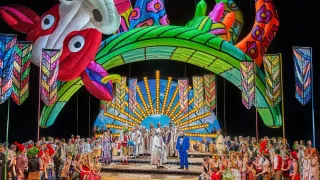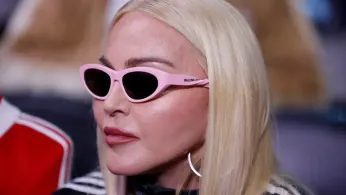
4 hours ago
Madonna Urges Pope Leo to Visit Gaza Amid Humanitarian Crisis
READ TIME: 3 MIN.
Madonna, one of the world’s most influential artists and outspoken advocates for human rights, made international headlines this week after issuing a heartfelt plea to Pope Leo XIV. In an emotional post to her 19 million Instagram followers on Monday, Madonna called on the newly elected pontiff to travel to the Gaza Strip, which has been wracked by deepening humanitarian catastrophe as starvation and violence spiral.
"As a mother, I cannot bear to watch their suffering. The children of the world belong to everyone. You are the only one of us who cannot be denied entry," Madonna wrote, directly addressing the pope and referencing the unique position of religious leaders in international conflicts. She added: “Politics cannot affect change. Only consciousness can. Therefore, I am reaching out to a man of God.” Her message, posted on her son Rocco’s 25th birthday, underscores her personal investment as a mother and humanitarian.
Madonna’s call comes amid severe conditions in Gaza. International organizations, including the Integrated Food Security Phase Classification, have warned that famine is unfolding, with access to food and essential services having “plummeted to unprecedented levels”. Recent reports estimate that over 227 Palestinians, including at least 103 children, have died from starvation or malnutrition as Israel’s blockade severely restricts the flow of humanitarian aid.
The total death toll in Gaza since October 2023 has surpassed 61,800, with the blockade and ongoing military operations exacerbating civilian suffering. Humanitarian organizations and global rights advocates have repeatedly urged Western leaders to intervene and protect the civilian population, but progress has been limited.
While Madonna’s appeal has inspired global attention, experts note that the pope’s ability to enter Gaza is restricted. Although she invoked the pope’s moral authority and broad access, Israel maintains strict control over Gaza’s borders and has the power to deny entry, even to religious leaders. Similar appeals have been made to previous popes to visit conflict zones, such as calls for Pope John Paul II to go to Iraq before the 2003 invasion, but logistical and political barriers often prevented such visits.
The Vatican has not yet commented on Madonna’s request, and Pope Leo, the first American-born pontiff, has recently renewed calls for an immediate ceasefire and urged the international community to uphold humanitarian law and protect civilians.
Madonna’s outspoken history as an LGBTQ+ ally lends her intervention additional resonance in queer communities worldwide. Many LGBTQ+ people have long been at the forefront of global human rights advocacy, calling for intersectional approaches that center the most marginalized, including children, women, and LGBTQ+ Palestinians living under occupation.
Her call to prioritize the lives of children, regardless of nationality, faith, or identity, echoes the values of solidarity and universal dignity often championed by LGBTQ+ activists. It also comes at a time when the Catholic Church itself faces calls for greater inclusion and accountability in its approach to LGBTQ+ issues and historical abuses.
While Madonna has made clear she “isn’t taking sides in the war,” her insistence on humanitarian action without blame resonates with many LGBTQ+ advocates who believe that compassion and justice are inseparable. Her public challenge to the pope also serves as a reminder that high-profile allies can spur international leaders and institutions to take action, even when political and religious divides seem insurmountable.
Madonna’s intervention has reignited debate about the power—and limits—of celebrity activism in the digital age. Her message, shared on a global platform, has brought renewed media and political attention to the crisis in Gaza and the moral responsibilities of faith leaders.
For LGBTQ+ audiences, the story is both a testament to the impact of allyship and a call to engage with global struggles for justice. Madonna’s approach—rooted in empathy and shared humanity—models the kind of intersectional advocacy that resonates deeply across diverse communities, particularly in times of profound crisis.
As the world awaits the Vatican’s response, Madonna’s plea stands as an urgent reminder: in the face of suffering, silence is not an option, and advocacy can take many forms—from the grassroots to the global stage.
